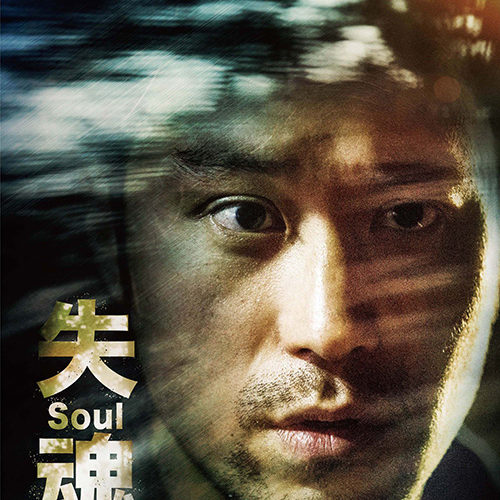Described in equal measure as a slasher horror and psychological meditation on the soul—whether from demonic possession, reincarnation, or both—Taiwan’s entry for the 86th Academy Awards ultimately proves difficult to categorize at all. Mong-Hong Chung‘s Soul may in fact be better labeled as a drama about familial love and fidelity despite destroying those same two things in the process of their preservation. There’s an unsettling spirituality at play that teeters between supernatural and schizophrenia with a weirdly rigid attitude towards life, death, finality, or lack thereof devoid of normal emotional outcry. It’s about a patriarch caring about his family above self-preservation as long their salvation is still attainable. Obviously not everyone can be saved and when one no longer proves viable, mourning is pushed aside to protect those who remain.

As such, although it’s Ah-Chuan (Hsiao-chuan Chang) we’re introduced to at the start, he isn’t necessarily the main character. Think of him as more of a catalyst for what’s to come after an unexplained episode leaves him unconscious at the restaurant for which he serves as chef. Bosses and coworkers alike fear for his health and thusly take him back home to the mountains where his father—affectionately known as Uncle Wang (Yu Wang)—resides. Ah-Chuan’s sister Yun (Shiang-chyi Chen) arrives to help nurse him back to health, but she senses something amiss she can’t quite put a finger on. It’s only in Wang’s steely look telling her to return home that we understand he feels it too. A survivor of a recent stroke himself, he’s ready to take sole responsibility for the boy regardless of danger.
Well, he takes the title of “protector” to heart and then some after the first body falls. Chung interestingly writes the whole ordeal so that we don’t vilify Ah-Chuan or lose respect for Wang’s somewhat ignoring the atrocity. It’s less about the murder itself and more about the why—whether you believe the son committed homicide due to psychopathy or because another spirit now inhabits his body. Yes, Ah-Chuan tells his father he’s no longer Ah-Chuan at all, but a nameless entity that came into an empty body and found himself at this far-flung spot amongst more orchids than people. Again, though, Chung deflects this revelation away from the head-scratcher of a man by putting the onus on Wang. Shouldn’t this father turn his boy in? Shouldn’t he do whatever he can to stop this monster?

Enter the kind of spiritualism that may detract many western audiences from truly appreciating what’s shown onscreen. All those hoping for body count will only hate that there are very few deaths. Instead they must embrace that Wang believes this creature standing in front of him. He believes his son still wanders the ether and may even know the reasons why before the truth of a two-decades old incident reveals itself. He must preserve this body so Ah-Chuan can return and help him forget the violence and sacrifice. So Wang hides him in the shed atop his land like a prisoner until he can find a solution. And he stops at nothing to keep Ah-Chuan safe from the authorities by becoming less than moral himself because for him morality is nothing compared to a father’s love.
It’s crazy, I know. But the layer of horror excels due to some gorgeous shots of the grotesque whether slomotion insects flapping their wings or a bloody stabbing with spurts of red floating into the air. There’s a palpable tension as the days go by because we’re unsure how gory everything till turn out once more and more people come to visit like Wang’s son-in-law (Leon Dai), Ah-Chuan’s old classmate Officer Wu (He-chun Liang), or the chief inspector investigating the initial murder (Chung-hua Tou‘s Yang). We don’t know if the spirit/Ah-Chuan is biding his time before killing again or how far Wang is willing to go to protect him. And with each new dramatic addition to the tale, a humorous one arrives too thanks to Liang’s semi-buffoon and Yu-hsun Chen‘s overly serious doctor.

Visions arrive—Shih-Chieh Chin‘s Messenger from the beyond who is either in Ah-Chuan’s head or a true spirit guide facilitating a conversation between the two souls vying for his body; trust is earned or assumed so Ah-Chuan can achieve greater freedom; and the movie somehow finds a way to ignore the violence of today by giving it credence as an understandable effect of something that occurred long ago. Chung keeps us on our toes by refusing to give any answers; utilizing great visual tricks like Messenger appearing in the flick of a light bulb and elaborate uncut camera pans making the most of the shed’s two tiny windows perfectly framing those on the other side. It’s a quiet film even at its loudest that somehow allows talk of metaphoric dreams to overshadow artistically shot gore.
The murders themselves are an afterthought—a reason to bring Ah-Chuan home so Wang is forced to face his past. It posits that mankind might not always be responsible for its actions when those too fragile or damaged to cope with the world’s horrors allow authentic evil in. Soul looks at psychosis as a literal out-of-body experience where we must ask ourselves if we can feasibly forgive the vessel used in order to abhor the entity in control. And in response to that we must also allow those sane enough to match evil’s heinous acts to do so if it’s “for the right reasons”. We don’t have to like Wang’s choices, but we must respect his reasons. This allowance may be impossible to fathom at first, but Yu Wang and Hsiao-chuan Chang’s complexity of character keep it gray enough to earn your complicity.
Soul is now screening at the New York Asian Film Festival.

